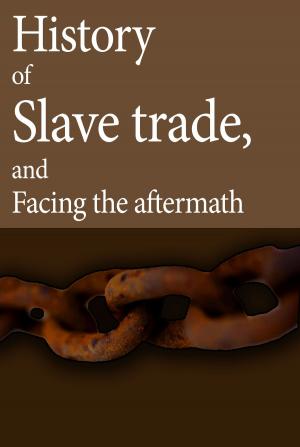Chile History, and Pre-Columbian Civilizations
Nonfiction, History, Americas, South America, Fiction & Literature| Author: | Henry Albinson | ISBN: | 9781310591938 |
| Publisher: | Sonit Education Academy | Publication: | June 25, 2016 |
| Imprint: | Smashwords Edition | Language: | English |
| Author: | Henry Albinson |
| ISBN: | 9781310591938 |
| Publisher: | Sonit Education Academy |
| Publication: | June 25, 2016 |
| Imprint: | Smashwords Edition |
| Language: | English |
History of Chile, early development and the recent ones, economic situation of Chile, government of Chile, Culture, people, development, Chile economic situation
From one of the most neglected outposts of the Spanish Empire, Chile developed into one of the most prosperous and democratic nations in Latin America. Throughout its history, however, Chile has depended on great external powers for economic exchange and political influence: Spain in the colonial period, Britain in the nineteenth century, and the United States in the twentieth century.
Chile's dependence is made most evident by the country's heavy reliance on exports. These have included silver and gold in the colonial period, wheat in the mid-nineteenth century, nitrates up to World War I, copper after the 1930s, and a variety of commodities sold overseas in more recent years. The national economy's orientation toward the extraction of primary products has gone hand in hand with severe exploitation of workers. Beginning with the coerced labor of native Americans during the Spanish conquest, the exploitation continued with mestizo peonage on huge farms in the eighteenth and nineteenth centuries and brutal treatment of miners in the north in the first decade of the twentieth century. The most recent victimization of workers occurred during the military dictatorship of Augusto Pinochet Ugarte (1973-90), when unions were suppressed and wages were depressed, unemployment increased, and political parties were banned
History of Chile, early development and the recent ones, economic situation of Chile, government of Chile, Culture, people, development, Chile economic situation
From one of the most neglected outposts of the Spanish Empire, Chile developed into one of the most prosperous and democratic nations in Latin America. Throughout its history, however, Chile has depended on great external powers for economic exchange and political influence: Spain in the colonial period, Britain in the nineteenth century, and the United States in the twentieth century.
Chile's dependence is made most evident by the country's heavy reliance on exports. These have included silver and gold in the colonial period, wheat in the mid-nineteenth century, nitrates up to World War I, copper after the 1930s, and a variety of commodities sold overseas in more recent years. The national economy's orientation toward the extraction of primary products has gone hand in hand with severe exploitation of workers. Beginning with the coerced labor of native Americans during the Spanish conquest, the exploitation continued with mestizo peonage on huge farms in the eighteenth and nineteenth centuries and brutal treatment of miners in the north in the first decade of the twentieth century. The most recent victimization of workers occurred during the military dictatorship of Augusto Pinochet Ugarte (1973-90), when unions were suppressed and wages were depressed, unemployment increased, and political parties were banned















